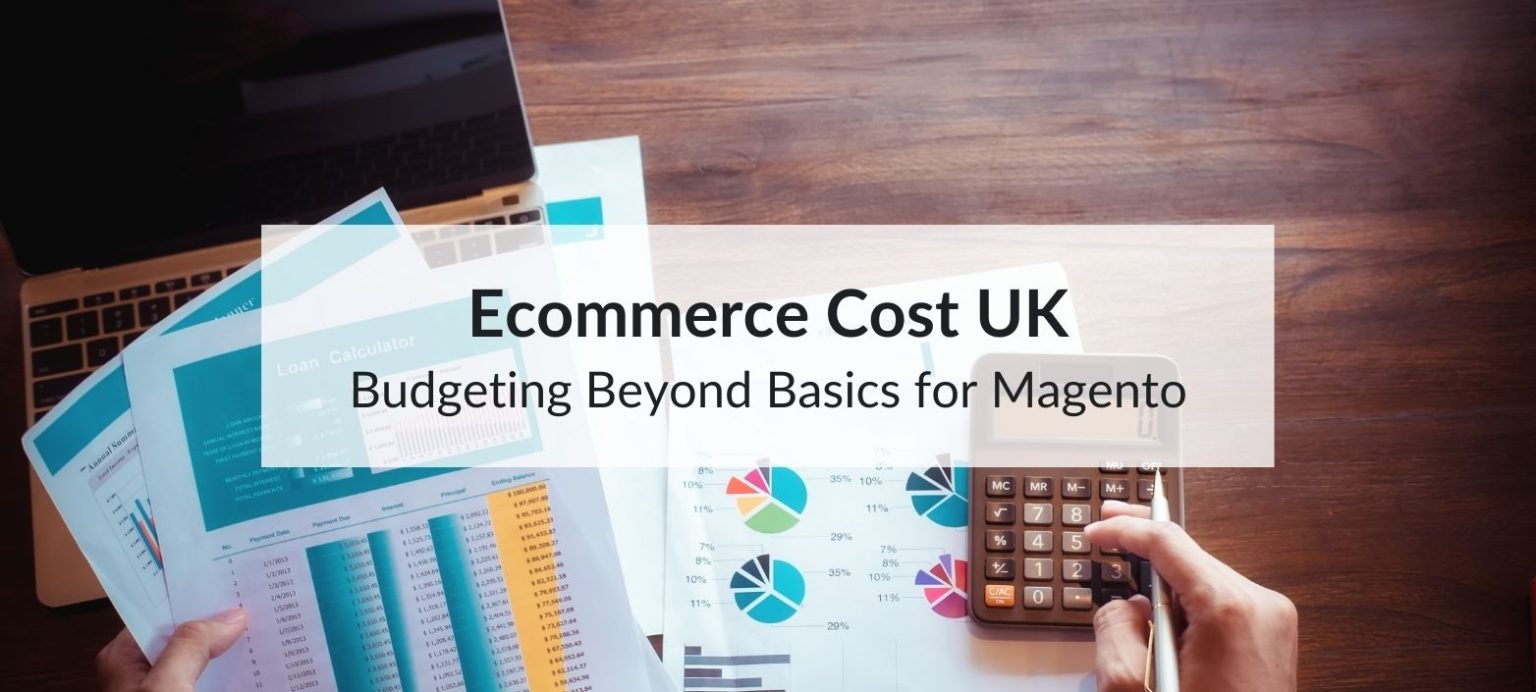While Magento offers powerful features and extensive customization, budgeting for your e-commerce venture requires a deep understanding of expenses beyond the basics. From hosting to third-party extensions, let’s explore the hidden ecommerce costs you should consider when running a Magento store in the UK.
The True Cost of Ecommerce: Beyond the Basics
Many businesses focus solely on the apparent costs like Magento installation, domain registration, and basic hosting. However, hidden expenses can quickly add up, affecting your profitability. Here’s a breakdown of those ecommerce costs:

1. Hosting and Infrastructure Costs
Magento’s robust architecture demands a powerful hosting solution. Basic shared hosting might save money initially, but it won’t meet Magento’s performance requirements, especially during high-traffic periods.
Considerations:
- Dedicated Servers or Cloud Hosting: Expect to pay between £50 and £300 per month for reliable Magento hosting in the UK.
- Scalability: Hosting costs may increase as your traffic grows or during seasonal spikes.
- Server Management: Managed hosting services often include server optimization, backups, and security, which can add £100-£500 monthly.
2. Magento Development and Customization
Magento’s flexibility allows for extensive customizations, but this often requires professional development services.
Costs:
- Custom Theme Development: Designing a unique look for your store can range from £1,500 to £10,000.
- Extension Integration: Many businesses need third-party extensions for features like payment gateways or enhanced SEO. Each integration can cost £100 to £1,000.
- Ongoing Maintenance: Regular updates, bug fixes, and performance improvements typically cost £500 to £2,000 annually.
3. Licensing Fees for Magento Commerce
While Magento Open Source is free, Magento Commerce (Adobe Commerce) comes with licensing fees.
Breakdown:
- Licensing fees start at approximately £15,000 annually and increase based on your store’s gross merchandise value (GMV).
- Additional costs may apply for enterprise-level features such as advanced analytics and B2B functionalities.
4. Payment Processing Fees
Every e-commerce business incurs fees for processing payments. These vary depending on the payment gateway and transaction volume.
Examples:
- PayPal: Charges around 2.9% + £0.30 per transaction.
- Stripe: Similar rates of 2.9% + £0.20 per transaction.
- UK-Specific Gateways: Providers like Worldpay may offer competitive rates but often include setup fees of £50-£100.
To mitigate costs, compare payment gateway fees and negotiate volume discounts.
5. Security Measures
Protecting your customers’ data is not optional. Failing to invest in robust security measures can result in hefty fines under GDPR regulations in the UK.
Essential Costs:
- SSL Certificates: Prices range from £30 to £300 per year.
- Web Application Firewall (WAF): Services like Cloudflare or Sucuri can cost £200 to £1,000 annually.
- Regular Security Audits: Professional audits to identify vulnerabilities may cost £500 to £5,000 annually.
6. Marketing and SEO
Driving traffic and conversions requires ongoing investment in marketing and search engine optimization.
Estimated Costs:
- SEO Services: Professional SEO services in the UK typically range from £500 to £2,000 per month.
- PPC Campaigns: Costs vary widely but expect to budget at least £1,000 per month for Google Ads.
- Content Marketing: Creating high-quality blog posts, videos, and product descriptions can cost £100 to £500 per piece.
7. Returns and Refund Management
Handling returns efficiently is a crucial part of e-commerce operations but comes with its own set of costs.
Hidden Costs:
- Return Shipping Fees: Depending on your policy, you may cover return shipping, which can cost £5-£15 per package.
- Restocking Fees: Storage and restocking returned items add to operational costs.
- Refund Processing: Payment gateways may charge additional fees for processing refunds.
8. Third-Party Integrations and APIs
Many Magento stores rely on integrations with third-party tools for shipping, CRM, and inventory management.
Typical Costs:
- API Subscriptions: Tools like ShipStation or HubSpot start at £20 per month but can scale up based on usage.
- Custom Integrations: Developing bespoke integrations can cost £1,000 to £10,000, depending on complexity.
9. Training and Staff Costs
Training your team to effectively manage and utilize Magento can incur additional expenses.
Examples:
- Magento Training Courses: These typically cost £200 to £1,000 per course.
- Hiring Magento Specialists: Salaries for Magento developers in the UK range from £30,000 to £70,000 annually, depending on experience.
Conclusion: Budget Wisely to Maximize ROI
Understanding the hidden costs of running a Magento store is essential for accurate budgeting and long-term success. While these expenses may seem overwhelming, they are investments in your store’s performance, security, and growth. By planning ahead and prioritizing critical areas like hosting, security, and marketing, you can maximize your ROI and set your e-commerce business up for sustained success.

